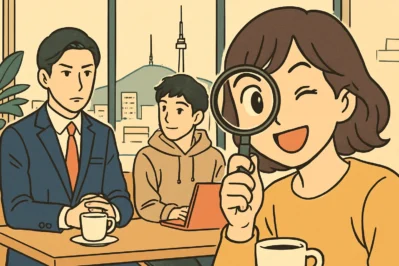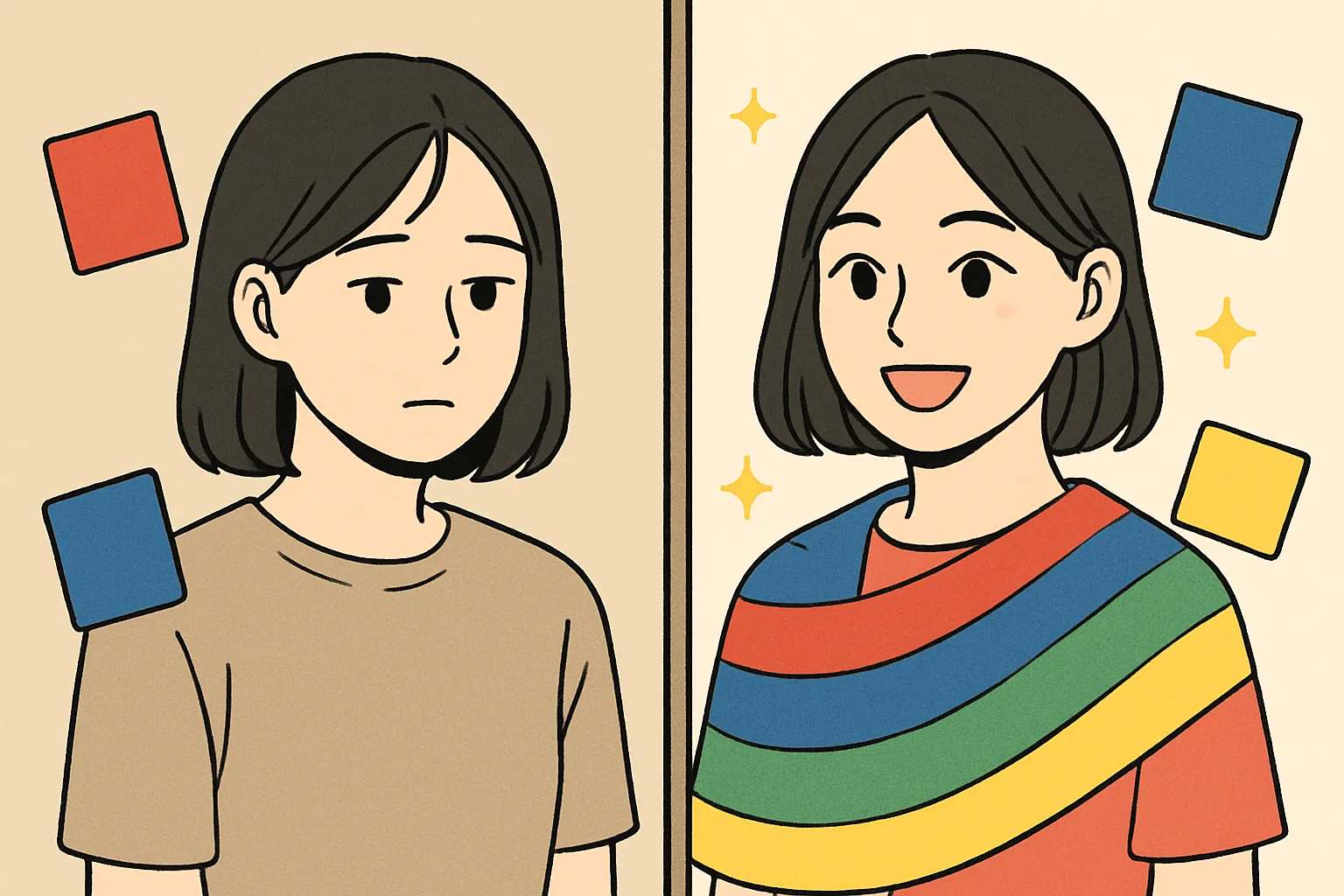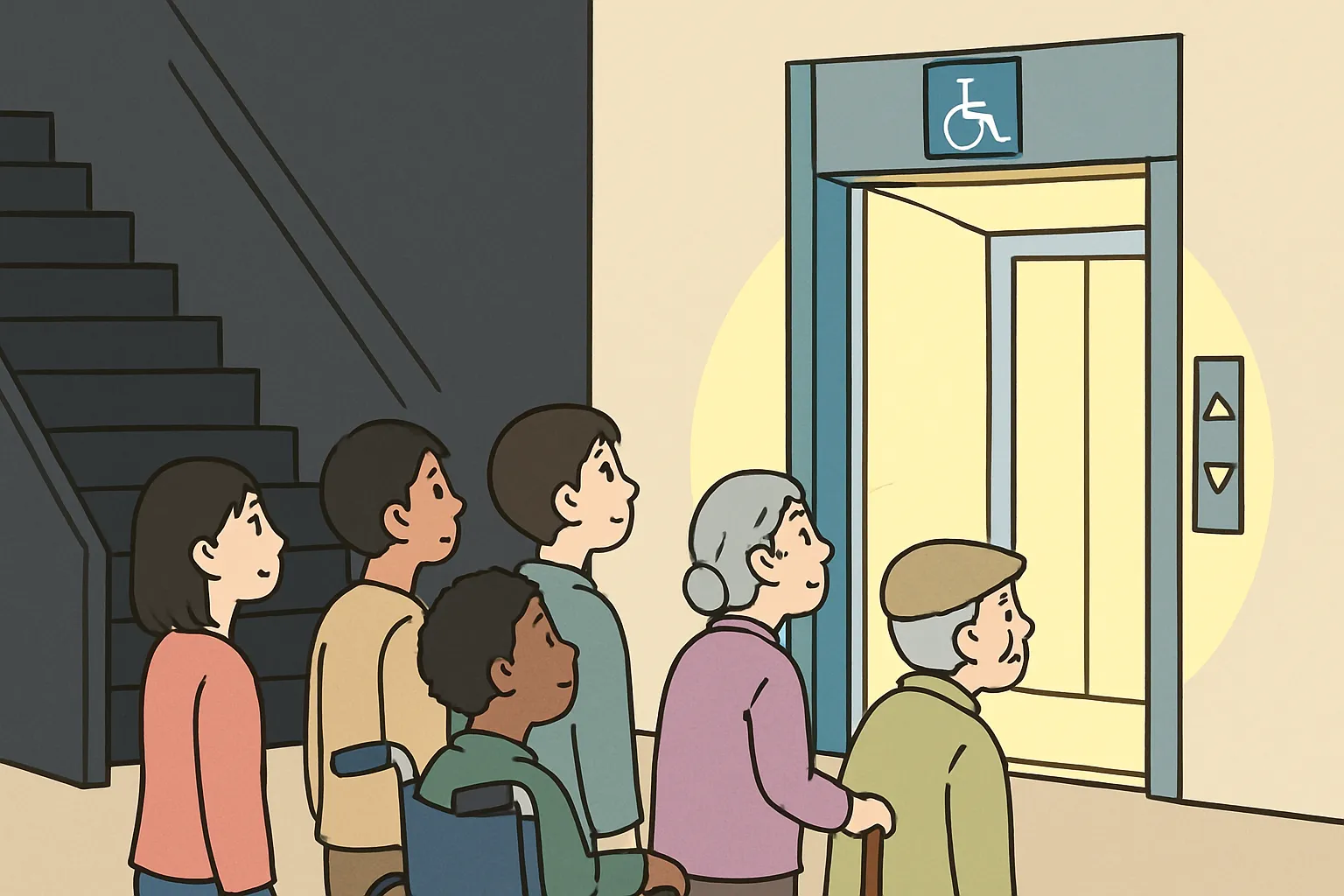Dress Like a K-Drama CEO? Guess Jobs in Korean!
Hello! It’s your favorite Korean learning buddy, Daily Korean, here to upgrade your language skills!
Have you ever been people-watching and tried to guess what someone does for a living just by their outfit? It’s a fun game, right? Well, you’re in luck! Lately in Korea, there’s a huge trend on YouTube and TikTok where creators hit the streets of Seoul to guess people’s jobs based on their fashion. It’s called “직업 맞히기” (jigeop matchigi – Guess the Job), and it’s hilarious and super interesting.
Today, we’re going to learn the essential Korean expressions so you can play along! This is perfect for when you’re at a café in Hongdae or just watching a K-drama and want to sound like a real Korean detective. Let’s get started!
Core Expressions: Your Detective Toolkit
Here are three key grammar patterns you absolutely need to know for making smart guesses.
1. -(으)ㄴ/는 것 같다 (It seems/looks like…)
- Pronunciation: [-(eu)n/neun geot gat-da]
- English Meaning: It seems like… / I think that…
- Detailed Explanation: This is your go-to phrase for making a soft, general assumption based on what you see. It’s much more natural than stating something as a fact.
- Use -은/ㄴ 것 같다 with adjectives (e.g., 예쁘다 -> 예쁜 것 같다).
- Use -는 것 같다 with verbs (e.g., 가다 -> 가는 것 같다).
- Use -인 것 같다 with nouns (e.g., 의사 -> 의사인 것 같다).
2. -나 보다 / -(으)ㄴ가 보다 (I guess/suppose…)
- Pronunciation: [-na bo-da / -(eu)n-ga bo-da]
- English Meaning: I guess… / I suppose that…
- Detailed Explanation: This expression is used when you’ve just observed something that leads you to a new conclusion. It implies a moment of realization. It feels a bit stronger than
-것 같다.- Use -나 보다 with verbs (e.g., 일하다 -> 일하나 보다).
- Use -(으)ㄴ가 보다 with adjectives (e.g., 바쁘다 -> 바쁜가 보다).
- Use -인가 보다 with nouns (e.g., 학생 -> 학생인가 보다).
3. -아/어 보이다 (To look/appear + Adjective)
- Pronunciation: [-a/eo bo-i-da]
- English Meaning: You look… / It appears…
- Detailed Explanation: This is perfect for commenting on someone’s appearance or vibe. You attach it to an adjective stem to describe how something or someone looks to you. It’s a fantastic way to give compliments or share your observations.
- Example: 피곤하다 (to be tired) + -어 보이다 -> 피곤해 보여요. (You look tired.)
- Example: 똑똑하다 (to be smart) + -해 보이다 -> 똑똑해 보여요. (You look smart.)
Example Conversation: Café Detectives
Imagine two friends, Alex (A) and Ben (B), people-watching at a café in Gangnam.
A: 저기 창가에 앉은 남자 좀 봐. 정장을 입고 있네.
[Jeogi chang-ga-e anj-eun namja jom bwa. Jeongjang-eul ipgo it-ne.]
Look at that man sitting by the window. He’s wearing a suit.
B: 와, 정말 멋있어 보여. 혹시 변호사인 것 같아? 드라마 ‘빈센조’에 나오는 변호사들처럼.
[Wa, jeongmal meosisseo boyeo. Hoksi byeonhosa-in geot gata? Deurama ‘Binsenjo’-e naoneun byeonhosadeul-cheoreom.]
Wow, he looks so cool. Do you think he seems to be a lawyer? Like the ones in the K-drama ‘Vincenzo’.
A: 음… 서류를 엄청 많이 보고 있네. 정말 바쁜가 봐.
[Eum… seoryu-reul eomcheong mani bogo it-ne. Jeongmal bappeun-ga bwa.]
Hmm… he’s looking at so many documents. I guess he’s really busy.
B: 맞아. 큰 회사에서 일하나 봐. 우리도 저렇게 멋지게 일하고 싶다!
[Maja. Keun hoesa-eseo ilha-na bwa. Uri-do jeoreoke meotjige ilhago sipda!]
Right. I suppose he works for a big company. I want to work coolly like that too!
Culture Tip & Trend Deep Dive
In Korea, fashion can often be a big clue about someone’s profession. While it’s not always accurate, certain “looks” are strongly associated with jobs.
- The “Hwesa-won” (회사원 – Office Worker) Look: In dramas like King the Land or What’s Wrong with Secretary Kim, you see the classic business-formal or business-casual look. A sharp suit or a clean-cut blouse and slacks often screams “I work in an office in Yeouido or Gangnam!”
- The “Startup” (스타트업) Vibe: Contrast that with the style in a drama like Start-Up. You’ll see more hoodies, comfortable jeans, and backpacks. This is the stereotypical look for developers (개발자) or designers (디자이너) in the tech industry, especially in a place like Pangyo, Korea’s Silicon Valley.
- Why You Should Use These Phrases: Using guessing phrases like -것 같다 and -나 보다 makes you sound much more natural and less aggressive. Instead of stating “He is a lawyer” (그는 변호사예요), which can sound too direct, saying “He seems to be a lawyer” (변호사인 것 같아요) is softer, more polite, and shows you’re making a thoughtful observation. You’ll sound just like a native speaker!
Let’s Practice!
Time to put your new detective skills to the test!
1. Fill in the blank:
You see someone walking down the street in trendy, artistic clothes, carrying a sketchbook. You want to say, “I guess she’s a designer.”
저 사람은 디자이너______ . (Hint: Use the
-나 보다 / -(으)ㄴ가 보다pattern for nouns!)
(Answer: 디자이너인가 봐요)
2. Make a sentence:
Your friend came to the meeting looking very professional and confident in a new blazer. Using -아/어 보이다, tell them they look cool/awesome.
(Answer: 오늘 정말 멋있어 보여요!)
Great job today, everyone! You’ve learned how to make assumptions and guess like a pro. Now you can watch those “Guess My Job” videos and understand everything!
Challenge: Leave a comment below guessing my job using one of the phrases we learned today! 제 직업은 무엇인 것 같아요? (What do you think my job is?)






